If I just browse some pages on the app, it sits at around 500MB. Many of these pages access the database but at this point in time, I only have roughly a couple of rows each for 10 tables, mostly storing strings and some small icons that are less than 50KB.
The real problem occurs when when I download a file. The file is roughly 140MB and is stored as a varbinary(MAX) in the database. The memory usage suddenly rises to 1.3GB for a split second and then falls back to 1GB. The code for that action is here:
public ActionResult DownloadIpa(int buildId)
{
var build = _unitOfWork.Repository<Build>().GetById(buildId);
var buildFiles = _unitOfWork.Repository<BuildFiles>().GetById(buildId);
if (buildFiles == null)
{
throw new HttpException(404, "Item not found");
}
var app = _unitOfWork.Repository<App>().GetById(build.AppId);
var fileName = app.Name + ".ipa";
app.Downloads++;
_unitOfWork.Repository<App>().Update(app);
_unitOfWork.Save();
return DownloadFile(buildFiles.Ipa, fileName);
}
private ActionResult DownloadFile(byte[] file, string fileName, string type = "application/octet-stream")
{
if (file == null)
{
throw new HttpException(500, "Empty file");
}
if (fileName.Equals(""))
{
throw new HttpException(500, "No name");
}
return File(file, type, fileName);
}
On my local computer, If I don't do anything, the memory usage stays at 1GB. If I then go back and navigate to some pages, it falls back down to 500MB.
On the deployment server, it stays at 1.6GB after the first download no matter what I do. I can force the memory usage to increase by continually downloading files until it reaches 3GB, where it drops back down to 1.6GB.
In every controller, I have overriden the Dispose() method as so:
protected override void Dispose(bool disposing)
{
_unitOfWork.Dispose();
base.Dispose(disposing);
}
This refers to:
public void Dispose()
{
Dispose(true);
GC.SuppressFinalize(this);
}
public void Dispose(bool disposing)
{
if (!_disposed)
{
if (disposing)
{
_context.Dispose();
}
}
_disposed = true;
}
So my unit of work should be disposed every time the controller is disposed. I am using Unity and I register the unit of work with a Heirarchical Lifetime Manager.
Here are a few of screenshots from the Profiler:



I believe this could be the problem or I am going down the wrong track. Why would Find() use 300MB?
EDIT:
Repository:
public class Repository<TEntity> : IRepository<TEntity> where TEntity : class
{
internal IDbContext Context;
internal IDbSet<TEntity> DbSet;
public Repository(IDbContext context)
{
Context = context;
DbSet = Context.Set<TEntity>();
}
public virtual IEnumerable<TEntity> GetAll()
{
return DbSet.ToList();
}
public virtual TEntity GetById(object id)
{
return DbSet.Find(id);
}
public TEntity GetSingle(Expression<Func<TEntity, bool>> predicate)
{
return DbSet.Where(predicate).SingleOrDefault();
}
public virtual RepositoryQuery<TEntity> Query()
{
return new RepositoryQuery<TEntity>(this);
}
internal IEnumerable<TEntity> Get(
Expression<Func<TEntity, bool>> filter = null,
Func<IQueryable<TEntity>, IOrderedQueryable<TEntity>> orderBy = null,
List<Expression<Func<TEntity, object>>> includeProperties = null)
{
IQueryable<TEntity> query = DbSet;
if (includeProperties != null)
{
includeProperties.ForEach(i => query.Include(i));
}
if (filter != null)
{
query = query.Where(filter);
}
if (orderBy != null)
{
query = orderBy(query);
}
return query.ToList();
}
public virtual void Insert(TEntity entity)
{
DbSet.Add(entity);
}
public virtual void Update(TEntity entity)
{
DbSet.Attach(entity);
Context.Entry(entity).State = EntityState.Modified;
}
public virtual void Delete(object id)
{
var entity = DbSet.Find(id);
Delete(entity);
}
public virtual void Delete(TEntity entity)
{
if (Context.Entry(entity).State == EntityState.Detached)
{
DbSet.Attach(entity);
}
DbSet.Remove(entity);
}
}
EDIT 2:
I ran dotMemory for a variety of scenarios and this is what I got.

The red circles indicate that sometimes there are multiple rises and drops happening on one page visit. The blue circle indicates download of a 40MB file. The green circle indicates download of 140MB file. Furthermore, a lot of the time, the memory usage keeps on increasing for a few more seconds even after the page has instantly loaded.